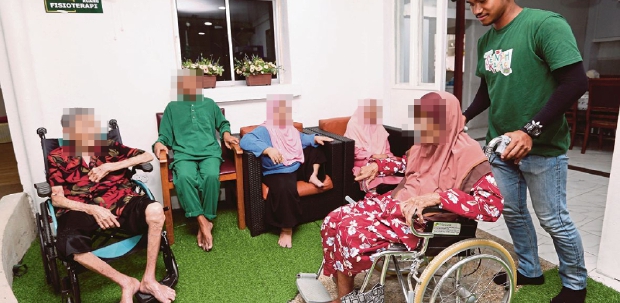SOME of the most basic things that need to be done when you are a caregiver include keeping your loved ones fresh and clean. This encompasses seeing to their personal care and hygiene such as toileting, and changing diapers.
Many of us don’t bat an eyelid when we do this for our children until such time they are old enough to manage on their own. Sure, I’ve heard of people gagging when they have to change their newborn’s diapers (something that’s a challenge for many new parents), but it’s an exercise that’s eventually embraced.
The next phase, which is when the child is out of diapers, is to clean the child after he or she’s passed motion. This is still not easy for some, so can you imagine what they go through if they are still unable to deal with this part of caring for a loved one?
Many of us may have to deal with this at some point, nevertheless. There may be instances where for one reason or another, the child cannot be potty trained because he or she is mentally or physically challenged. Another scenario is where you have to care for your elderly loved ones who can no longer clean after themselves.
Those who really can’t manage this shouldn’t beat themselves over it. You can find or hire someone to do it for you. However, you should know how it’s done, and most importantly, be able to protect your loved one’s modesty and dignity.
The same goes for when you need to bathe a loved one who is suffering from physical infirmity. The circumstances may vary. They may be sound of mind but just frail, and need assistance in the bathroom. They might also be bedridden.
Or they might suffer from dementia or Alzheimer’s disease that makes logic and reason impossible. This latter group of elderly may put up a fight when it comes to bathing. For such people, try and get expert advice on how to correctly bathe them, or arrange for bath times at daycare centres or some of the hospitals. You might also look for home bathing services.
BATHING THE ELDERLY
Generally, when taking on the task of bathing an elderly loved one, you have to carefully plan what you need or intend to do. How to get from the bed to the bathroom? Would you need a wheelchair? It may just be 10 steps away but there is a huge difference if you have to bear the person’s entire bodyweight. It’s worse if they are uncooperative. It could be dangerous for the both of you. The last thing you need is either one getting injured from a fall.
Next, you’d want to have a bathing stool or seat. Make sure it’s secure and doesn’t easily slip. Remember you’re working with water and soap. Once you’re in the bathroom, you’d want to work quickly but in a safe and efficient manner.
Ensure that everything you need is within reach. You don’t want your loved one to wait too long for a bath or to be wiped dry after bathing. They may catch a cold and end up getting sick. The bath water should be warm. Remember that their skin is thinner compared to younger adults.
It’s always a good idea to have some sort of lightweight cloth covering them while they wait to be bathed. If modesty is an issue, keep that cloth on so that your elderly loved one is not totally exposed. Not everyone is comfortable being stark naked in front of others. This could also be the case if a son is bathing his mother or daughter bathing her father.
AWKWARD FEELINGS ASIDE
If they are too weak to scrub themselves, use bath gloves or a soft washcloth to clean them so that you can minimise skin-to-skin contact. Liquid soaps work best in such instances. Have a system of working on one area or one side at a time.
To clean their face, try not to spray the face with a handheld shower or pour water over it. Your loved one may inhale the water and choke. Gently wash the face with a washcloth, rinse it and repeat.
Finally, you can rinse the body from the neck down before quickly removing the bathing gown or cloth and covering him or her with a towel to dry and keep warm until he or she can be dressed. If a shampoo is needed, work on that separately at the sink. It can be before or after the bath. This need not be done daily unless the hair is soiled or dirty.
Bathing your elderly loved one can be uncomfortable at first, but remember that this person cared for you when you were little. So you can set aside those awkward feelings and show that you really do care. Remember that this can’t be easy for them either, especially when they’ve been the family’s pillar of strength all this while.
Putri Juneita Johari volunteers for the Special Children Society of Ampang. She can be reached at [email protected].





